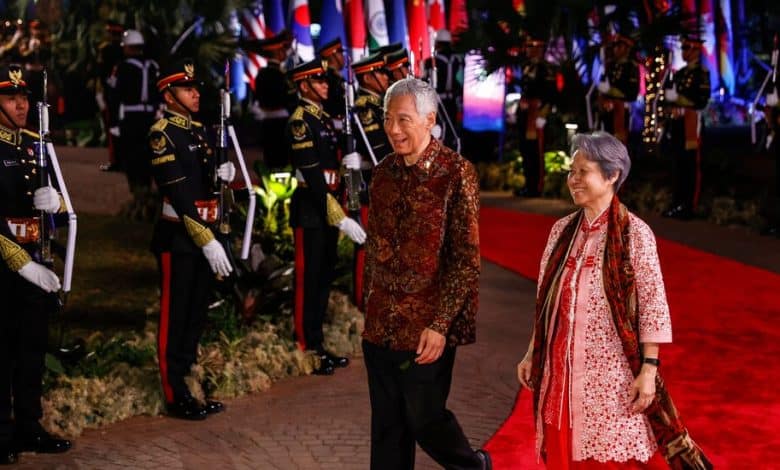Singapore’s Riches Grew Under Its Leader. So Did Discontent.

Singapore was once known as an affluent and strait-laced city-state. Today, it’s a glitzy international destination. It has hosted Taylor Swift concerts and Formula One night races. And it is substantially richer, per capita, than the United States.
That transformation happened under Lee Hsien Loong, the Southeast Asian country’s third prime minister. He made Singapore even more prosperous by largely following the semi-authoritarian and free-market model pioneered by his father, Lee Kuan Yew, the country’s first leader.
On Wednesday, Singapore gets a new leader for the first time in nearly 20 years. Mr. Lee, 72, is handing the office to his deputy, Lawrence Wong, 51. Their People’s Action Party has governed Singapore continuously for over six decades, and has had astounding successes. But there are concerns that the vaunted “Singapore model” is failing more and more people.
Singapore is one of the most expensive cities in the world, but it does not have a minimum wage. Housing prices have surged, and many Singaporeans say social mobility has dropped considerably. Others complain that freedom of expression is still tightly controlled, if less so than before. The strains are exacerbated by the need for overseas workers; about 40 percent of Singapore’s nearly six million people are not citizens.
Compared to his famously strict father, Mr. Lee showed flexibility and responsiveness to the public’s demands, but the P.A.P.’s popularity took a significant hit during his tenure. Nonetheless it remains, for now, firmly ensconced in power.
